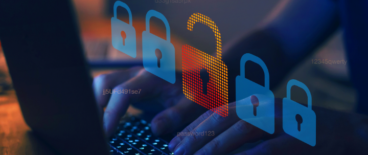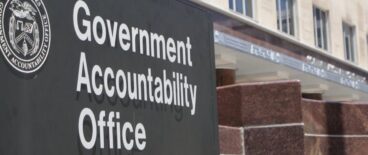Cybercrime is a rising concern both in the United States and worldwide. In order to address rising crime rates and costs of data breaches, governmental agencies are now empowered to respond with the full scope of the False Claims Act. Individual whistleblowers can now report cyber fraud under this federal legislation to help hold businesses that contract with the government accountable. This change better protects private data and helps prevents financial fraud.
If you have information about a business that holds a government contract – such as in healthcare, defense, financial, or other sectors – and which has knowingly violated its obligation to monitor and report cybersecurity breaches or employed deficient cybersecurity practices, you may be eligible to become a whistleblower. Whistleblowers may be entitled to significant financial rewards.
In order to find out more information, such as how to come forward, what evidence you may be able to report, and how your rights will be protected, speak to a qualified cyber fraud whistleblower lawyer today. The team at Tycko & Zavareei LLP has years of experience in whistleblower law, with millions of dollars recovered and secured for those who have come forward with the truth. If you are considering blowing the whistle on fraud, don’t hesitate. Contact our team today for more information.
Cyber Crime: A Growing Threat
According to recent studies, businesses experienced 50 percent more cyber attack attempts per week in 2021 compared to previous years. While 43 percent of cyberattacks target small businesses, the cost of each individual attack has also risen exponentially. In fact, by the year 2025, cybercrime could reach up to $10.5 trillion annually from the global economy.
The Civil Cyber-Fraud Initiative
Deputy Attorney General Lisa O. Monaco announced the new initiative to crack down on cyber fraud. Effective October 2021, individuals can now report cyber fraud under the False Claims Act. According to Monaco, the new development represents a commitment to use civil enforcement tools to hold government contractors receiving federal funds responsible when they fail to abide by “required cybersecurity standards.” She continued, “This is a tool that we have to ensure that taxpayer dollars are used appropriately and guard the public fisc and public trust.”
The Civil Cyber-Fraud Initiative is especially powerful due to the whistleblower incentive created by the federal False Claims Act. According to this law, those who act on behalf of the government by coming forward to report fraud and corruption can be rewarded with up to 30 percent of the government’s total financial recovery in a successful cyber security fraud lawsuit.
The False Claims Act currently states that violators can be held liable for treble damages (three times the damages) per violation, including a separate financial penalty that correlates to inflation rates. Because of these high damages, whistleblower percentages in cases of extensive fraud or ongoing deceit can easily number into the hundreds of thousands or millions.
How Cyber Fraud Falls under the False Claims Act
Cyber fraud presents a growing risk to American businesses and taxpayers. Companies with lax cybersecurity initiatives or who knowingly misrepresent the level of security that they provide can put enormous amounts in government investment in jeopardy. By glossing over this risk, or actively misreporting it to the government, they can perpetuate fraud more easily than ever due to the interconnectedness of today’s internet culture.
The Civil Cyber-Fraud Initiative addresses this risk by empowering whistleblowers to come forward. According to this new legislation, whistleblowers can now file lawsuits against “entities or individuals that put U.S. information or systems at risk by knowingly providing deficient cybersecurity products or services, knowingly misrepresenting their cybersecurity practices or protocols, or knowingly violating obligations to monitor and report cybersecurity incidents and breaches.”
First Cyber Fraud Settlement Announced
In March of 2022, the first cyber fraud settlement using the False Claims Act was announced by the Department of Justice. This case may represent a blueprint for the kinds of cyber fraud that may be penalized under the False Claims Act. It may also act as an incentive for other whistleblowers to come forward with information about cyber security fraud. Finally, it may help the government contract with more secure businesses and procure awards against financial fraudsters.
In the first cyber fraud case announced, the defendant was Comprehensive Health Services LLC (CHS), a medical services contractor located in Cape Canaveral, Florida. CHS was contracted to provide medical support services at government-run facilities in Iraq and Afghanistan. As part of their contract, CHS assured the government that they kept confidential medical records stored on a secure and encrypted system. In actuality, CHS staff allegedly scanned and saved records on a non-secure internal network system, which was accessible to non-clinical staff. This breach could have not only exposed personal and private medical information, but also the confidential identifying information of American servicemembers, diplomats, officials, and contractors overseas in Iraq.
Examples of Cyber Fraud that May Violate the False Claims Act
When government contractors fail to comply with the cyber security requirements outlined in their contract, it may be considered cyber fraud.
In the aforementioned case, the contractor was a health services provider. However, government contractors may work in securities, banking, defense, construction, manufacturing, environmental protection, mail delivery, and other fields.
Examples of failing to uphold cyber security requirements include:
- Storing sensitive material on unencrypted network systems
- Failing to maintain or update cybersecurity protocols as stipulated in a contract
- Failing to report existing breaches or hacks
- Covering up new breaches or hacks while under government contract
Why Whistleblowers Are Helpful in Fighting Cyber Fraud
As many employees have a greater awareness of cyber security features and the inner workings of their companies, they may be the first line of defense against preventing cyber fraud. As a whistleblower, you are most likely to know if and when a data breach has occurred, what kinds of files were affected, and how it is being shared with clients – including the federal government.
Benefits of Reporting Cyber Fraud
Reporting cyber fraud benefits the government, the taxpayer, the business, and ultimately the whistleblower. The government can be made aware of sensitive material that has been leaked, including financial documents, medical records, and even identifying information that could compromise American service members and diplomats abroad. The taxpayer’s funds can be recouped when they have been misappropriated or invested in an untrustworthy organization. The business can be made aware of data breaches and incentivized to provide a higher quality service to the consumer. And finally, whistleblowers such as yourself can be eligible for significant financial awards because of their service.
Call a Cyber Fraud Whistleblower Attorney Today
Cyber security is of the utmost importance in today’s world. Do not wait to blow the whistle on fraud that could cost taxpayers millions, leak sensitive material, and compromise individuals’ identities. Contact a cyber fraud whistleblower lawyer at Tycko & Zavareei LLP today if you have information about cyber security fraud or data breach coverups by a government contractor. Your initial consultation is confidential and complimentary.









